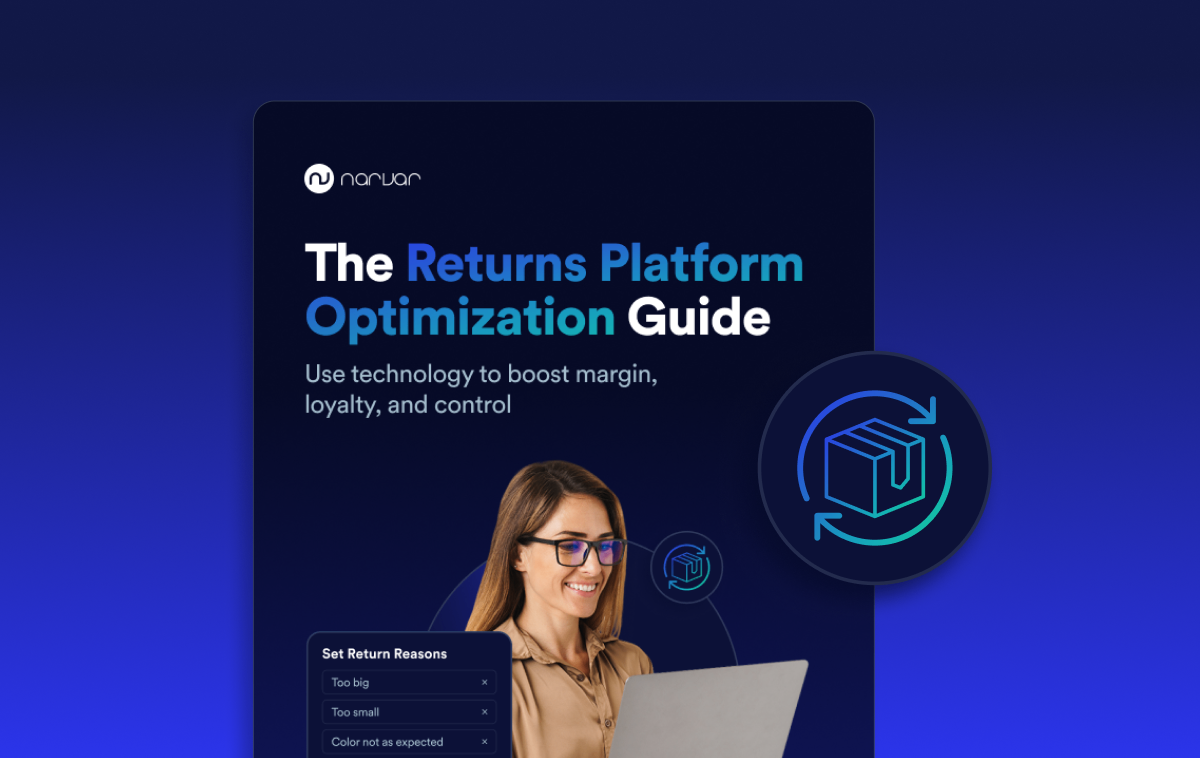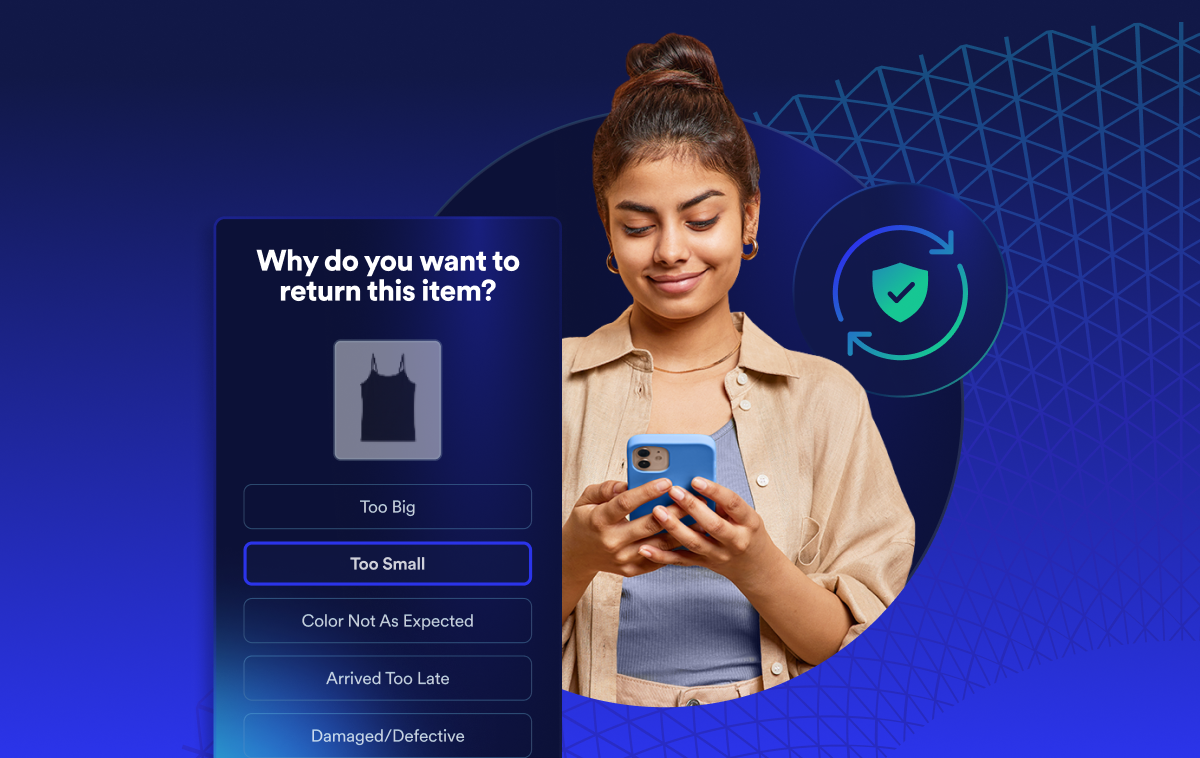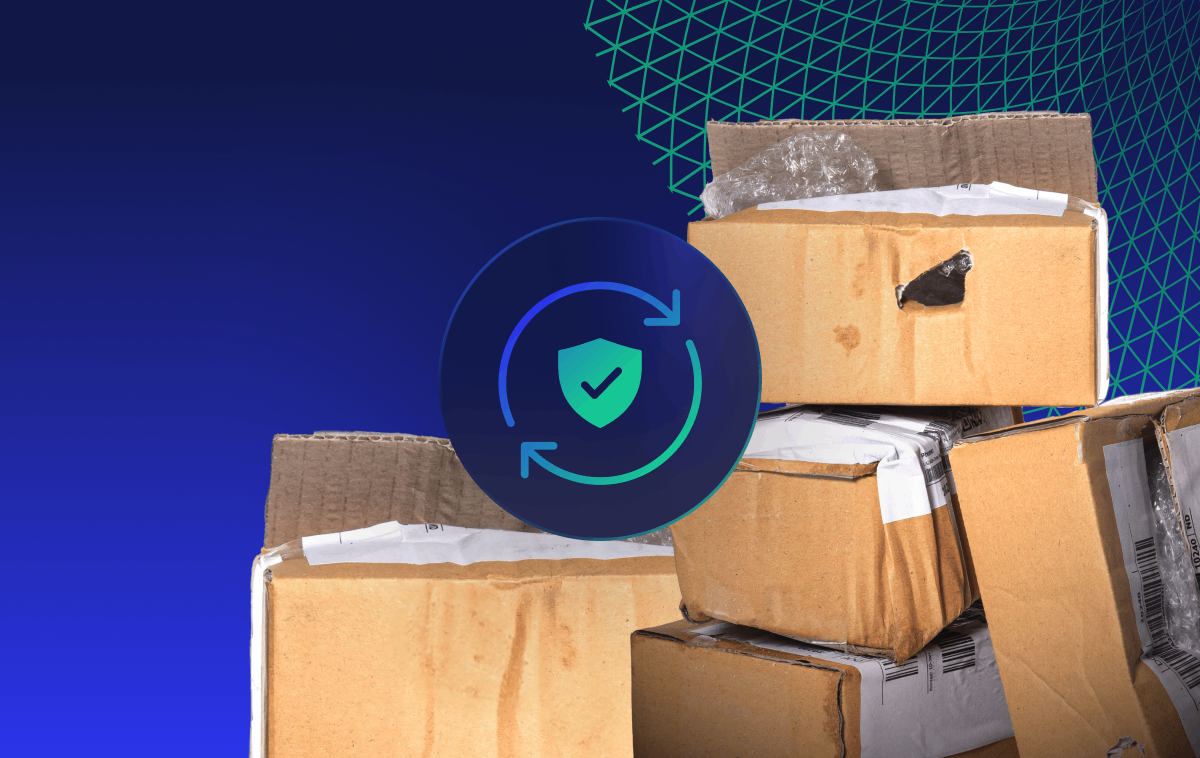

AI-powered delivery date estimates to boost conversion
Give shoppers peace of mind and protect and grow your bottom line
Personalized tracking experiences to build brand loyalty
Returns and exchanges management to mitigate fraud and reward best customers
Proactive communication to drive customer lifetime value
Delivery claim management to tackle fraud and build trust
Shipping Policy Best Practices (With Examples)

Customers crave transparency when it comes to shipping. In fact, not only do 83% of customers expect regular communication about their orders, more than half (53%) won’t complete an order if they don’t know when it will arrive. That’s what makes a well-designed shipping policy so important.
Your shipping policy should concisely outline the shipping options, costs, and processing times you offer so that you and your customers can be on the same page from the start.
Could your shipping policy use an upgrade? Dig in to this detailed overview of shipping policy best practices, along with shipping policy examples to use as inspiration.
Acknowledge local, domestic, and international customers
Depending on your ecommerce business’s target market, there are three types of customers you may encounter when shipping: local, domestic, and international. Keep your shoppers’ locations in mind as you develop your shipping policy to ensure you fully address the concerns of each specific segment.
With local customers, for example, you may want to give them the option to buy online and pick up in-store (BOPIS) or to receive local deliveries. For domestic customers, you’ll likely want to make multiple shipping options available, including standard, overnight, and expedited shipping. And for international customers, you may need to factor in costs associated with customs processing or give country-specific shipping time estimates.
Include information on shipping options and cost
Giving customers as much information as possible means breaking out the specifics of each shipping service you offer. For example:
- Free shipping: Many companies offer free shipping, and there are different strategies to leverage free shipping for your business. For example, you can offer free shipping once customers hit a certain threshold (e.g. $50), which would help increase your average order value (AOV).
- Standard shipping: Make sure you offer a basic, affordable option for customers who want the most economical solution and don’t mind waiting a bit longer to receive their item(s).
- Expedited shipping: This may include 2-day shipping, Priority Mail or Express shipping, and similar services.
- Overnight shipping: You may encounter customers who want their order next-day (and are willing to pay for it). Just be sure you can support the internal logistics needed to facilitate overnight deliveries before adding overnight shipping to your list of options.
- International shipping: Be ultra-transparent about your specific international shipping policies; some brands even create dedicated pages on their websites to house details on international shipping.
- Local deliveries and in-store pick up: You may be able to offer these solutions to local customers for added convenience.
As an example, take the shipping policies from Patagonia, which include a simple overview of shipping options and costs, as well as detailed information on delivery time and cost estimates.

And because international shipping can get a little tricky, Patagonia has a dedicated page where shoppers can find full details.

Patagonia’s full international shipping policy can be found here.
When it comes to in-store pick up, REI offers an easy-to-use drop-down box that allows customers to locate the store in their area.

From there, they click on their location to find relevant local pickup information.

Describe average fulfillment times
Besides delivery times, your shipping policy should also discuss average fulfillment times (i.e. how long it takes your team and/or warehouse to package the item and get it entered into the mailstream).
Here’s why this information is critical. Imagine that you promise free 2-day shipping on your website. If you don’t also clearly state that fulfillment times average an additional 1-2 business days, you’re likely to encounter customers who will expect to receive their items two days after ordering. Setting clear expectations about fulfillment and processing times helps avoid frustration.
As an example, organic superfood brand Your Super explicitly states that “100% of orders are shipped within one business day” in this shipping policy example — leaving no guesswork for their shoppers.

Include details about carriers and service levels
It’s also a good idea to explain which carriers and service levels your company uses. In the U.S., for example, only USPS is authorized to put packages into a customer’s mailbox; other carriers will drop them off on customers’ porches, lobbies, etc. Knowing which carrier is being used allows customers to prepare for deliveries in advance, if needed.
For example, men’s beard and mustache grooming brand Can You Handlebar says they ship through USPS, with packages weighing less than a pound going through First Class and those weighing more than a pound going through Priority Mail.

Place an emphasis on customer communication
One final shipping policy best practice is to spend some time thinking about how to best communicate with customers after the sale and throughout the order fulfillment and shipping processes.
A few updates you may want to pass to your customers—whether via email, SMS, or other messaging option—include:
- Order confirmations
- When items are scheduled to be shipped
- When they have actually shipped
- Updates on any changes or shipping delays
- Details on events such as holidays or unforeseen circumstances that may affect the final delivery times
Here is a sample customer journey, with an email triggered at different parts of the package’s delivery journey.

You may also want to host some of this general delivery information on your website, as well. Chubbies has a few specific areas on their shipping policy page that point customers to this type of information.

If you need more customizable tracking pages, deeper communication options with customers, and greater visibility over the entire shipping and delivery experience, take a look at Narvar. Narvar even lets you build fully-customized tracking pages, which act as a central hub from which customers can find current information on their orders.

Get more insights from the experts
GET STARTED
Power every moment after the buy
Build trust. Protect margins. Drive growth — “Beyond Buy.”





















